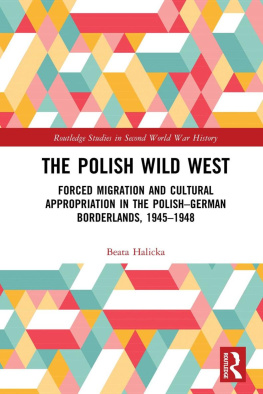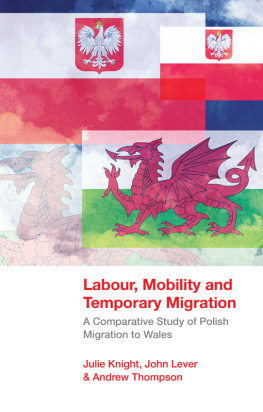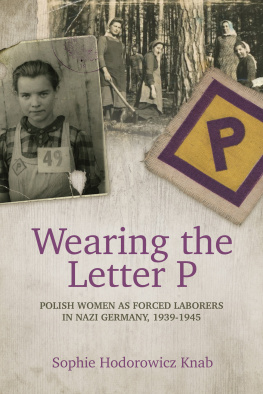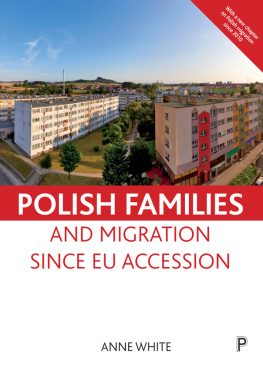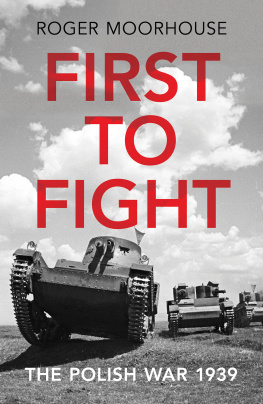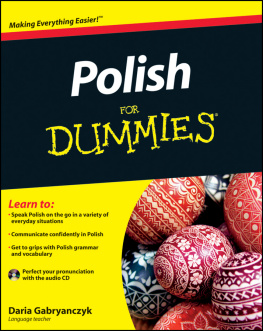The Polish Wild West
The incorporation of German territories east of the Oder and Western Neisse rivers into Poland in 1945 was linked with the difficult process of an almost total exchange of population and involved the taking over of a region in which the Second World War had effected an enormous level of destruction. The contemporary term Polish Wild West not only alluded to the reigning atmosphere of chaos and survival of the fittest in the Polish-German borderland but was also associated with a new kind of freedom and the opportunity to start everything anew. The arrival in this region of Polish settlers from different parts of Poland led to Poles, Germans and Soviet soldiers temporarily coming into contact with one another. Living together in this war-damaged space was far from easy.
On the basis of ego-documents, the author recreates the beginnings of the shaping of this new society, one affected by a repressive political system, internal conflicts and human tragedy. In distancing oneself from the until-recently dominant narratives concerning expellees in Germany or pioneers of the Recovered Territories in Poland, Beata Halicka tells the story of the disintegration of a previous cultural landscape and the establishment of one which was new, in a colourful and vivid manner and encompassing different points of view.
Beata Halicka is Professor of Contemporary History at the Adam Mickiewicz University in Pozna, Poland. Her book, Polands Wild West , was published in Polish and German and received the Identities Prize in 2016 for the best historical book in Poland. For more on this, please visit: http://beatahalicka.pl/
Routledge Studies in Second World War History
The Second World War remains today the most seismic political event of the past hundred years, an unimaginable upheaval that impacted upon every country on earth and is fully ingrained in the consciousness of the world&$3pos;s citizens. Traditional narratives of the conflict are entrenched to such a degree that new research takes on an ever important role in helping us make sense of World War II. Aiming to bring to light the results of new archival research and exploring notions of memory, propaganda, genocide, empire and culture, Routledge Studies in Second World War History sheds new light on the causes, events and legacy of global war.
Recent titles in this series
Food in Wartime Britain
Testimonies from the Kitchen Front (19391945)
Natacha Chevalier
The Construction of a National Socialist Europe during the Second World War
How the New Order Took Shape
Raimund Bauer
Intellectual Collaboration with the Third Reich
Treason or Reason?
Edited by Maria Bjrkman, Patrik Lundell, and Sven Widmalm
German-occupied Europe in the Second World War
Edited by Raffael Scheck, Fabien Thofilakis, and Julia Torrie
British Exploitation of German Science and Technology, 19431949
Charlie Hall
Unknown Conflicts of the Second World War
Forgotten Fronts
Chris Murray
A New Nationalist Europe Under Hitler
Concepts of Europe and Transnational Networks in the National Socialist Sphere of Influence, 19331945
Edited by Johannes Dafinger and Dieter Pohl
The Swedish Jews and the Holocaust
Pontus Rudberg
For more about this series, please visit: https://www.routledge.com/Routledge-Studies-in-Second-World-War-History/book-series/WWII
The Polish Wild West
Forced Migration and Cultural Appropriation in the Polish-German Borderlands, 19451948
Beata Halicka
English translation by Paul McNamara
First published 2020
by Routledge
52 Vanderbilt Avenue, New York, NY 10017
and by Routledge
2 Park Square, Milton Park, Abingdon, Oxon, OX14 4RN
Routledge is an imprint of the Taylor & Francis Group, an informa business
Translated by Paul McNamara
The right of Beata Halicka to be identified as author of this work has been asserted by her in accordance with sections 77 and 78 of the Copyright, Designs and Patents Act 1988.
All rights reserved. No part of this book may be reprinted or reproduced or utilised in any form or by any electronic, mechanical, or other means, now known or hereafter invented, including photocopying and recording, or in any information storage or retrieval system, without permission in writing from the publishers.
Trademark notice : Product or corporate names may be trademarks or registered trademarks, and are used only for identification and explanation without intent to infringe.
Originally published in 2015 as Polski Dziki Zachd. Przymusowe migracje i kulturowe oswajanie Nadodrza 1945-48 by Universitas, Krakw.
British Library Cataloguing-in-Publication Data
A catalogue record for this book is available from the British Library
Library of Congress Cataloging-in-Publication Data
Names: Halicka, Beata, author. | McNamara, Paul, M.Litt., translator.
Title: The Polish wild west: forced migration and cultural appropriation in the Polish-German borderlands, 1945-1948 / Beata Halicka; translated by Paul McNamara.
Other titles: Polens Wilder Westen. English | Forced migration and cultural appropriation in the Polish-German borderlands, 1945-1948
Description: Abingdon, Oxon: Routledge, 2020. | Series: Routledge Studies in Second World War History | Translated from Polish. | Includes bibliographical references and index.
Identifiers: LCCN 2020002067 (print) | LCCN 2020002068 (ebook) | ISBN 9780367457143 (hbk) | ISBN 9781003024903 (ebk)
Subjects: LCSH: Western and Northern Territories (Poland)History. | Migration, InternalPolandWestern and Northern Territories. | Forced migrationPoland. | Population transfersGermans.
Classification: LCC DK4600.O3385 H2713 2020 (print) | LCC DK4600.O3385 (ebook) | DDC 943.8/1054dc23
LC record available at https://lccn.loc.gov/2020002067
LC ebook record available at https://lccn.loc.gov/2020002068
ISBN: 9780367457143 (hbk)
ISBN: 9781003024903 (ebk)
Typeset in Bembo
by Deanta Global Publishing Services, Chennai, India
Frontispiece credit: Poles returning from forced labour, 17 May 1945; image from the collections of the Polish State Archives, Szczecin
Contents
As this book would not have appeared if it had not been for the support of many people and institutions, I am delighted to have the opportunity here to express my gratitude to them. The initial outline of the book came about as part of my cooperation with Prof. Helga Schultz. The colloquium which she organised at the Department of Economic and Social History of Central and Eastern Europe at the Viadrina European University was a great inspiration for me and the initial spur to commence my research. My post-doctoral dissertation gained a concrete shape during my work on the project entitled Odra-Oder: The Oder Region in Europe, Past, Present and Future , which was also carried out at the Viadrina European University in Frankfurt (Oder). The interdisciplinary approach of Prof. Karl Schlgel comprised the basis for conducting my research, along with area studies of this region conducted in an international team. Here, I would like to thank all such colleagues for their fruitful cooperation on this project. Special thanks must go to Prof. Karl Schlgel for facilitating many discussions on the structure of the book, as well as on certain questions concerning particular chapters. I also gained valuable pointers from academic discussions with Prof. Jan Piskorski who shared much advice with me during work on the manuscript. I would like to thank him for his close reading of the text and his critique of certain research results. The insight of Prof. Robert Traba was of great help during the final phase of work on the manuscript, who, drawing on his broad knowledge of the subject, brought my attention to some additional aspects. During the years in which this research was conducted, I received generous funding from the Polish-German Research Foundation. Without this support, this project could never have been completed in such a short time. I also received the advice, support and knowledge of numerous friends and colleagues in the trade with whom exchanging thoughts enriched my work on this book to an exceptional degree. I am greatly indebted to all of them.



